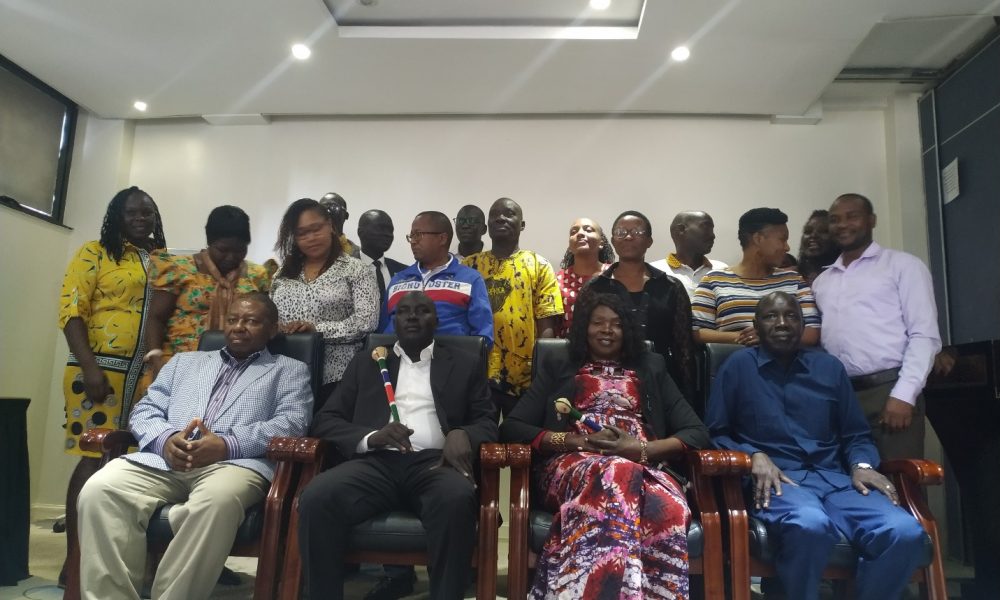By Charles K Mark
South Sudan National Bureau of Standards (SSNBS) and the East Africa Standard Committee (EASC) have agreed to harmonize food quality standards in the region.
The bureau of standards, on Friday last week concluded a five days’ workshop on harmonization and editing of quality standards on cereals, pulses and their derived products.
South Sudan National Bureau of Standards Chief Executive Officer, Mary Gordon Muortat said food safety concern has been a very big issue in the country where food committee is lacking.
“We are happy to inform all of ourselves and our EAC that South Sudan is very serious nowadays on the issue of food safety, because without food safety, our lives are at risk,” Mrs. Muortat said.
The Bureau of Standards CEO said South Sudan is very attentive now, more than ever, and the country wants to get involved in the issue of food safety.
According to Mrs. Muortat, the EASC was involved to look at all five food safety standards and come to an agreement on how they would all be used in conformity across the block.
She said EASC is also to ensure that the food safety standards are consistently made, shared, and used according to what has been agreed.
“So, these people you’re seeing today, these technical people, they work very hard to ensure that whatever the food safety standard says here in South Sudan is what it is saying in Kenya, Tanzania, and Uganda.” Mrs. Muortat noted.
She said the action also envisioned guaranteeing that these standards are well studied and approved in accordance with international standards.
“We are not creating it ourselves, but we are modifying it to suit our needs and the basis used here in our region, especially in the East African countries.” She added.
The safety food standards that Mrs. Muortat speaks about range from biscuits, pasta products, breakfast cereals, milled maize, and cooked beans, respectively.
The CEO added that some safety standards were meant to communicate with the Codex standard.
The “Codex Alimentarius”, or the food code, is a collection of international standards, guidelines, and codes of practice to protect the health of consumers and ensure fair practices in the food trade.
Chairperson of the EASC Technical Committee Mr. Bernard said they had planned to discuss five standards but managed to discuss four.
“One standard was returned for stakeholder engagement,” he said.
To Mr. Bernard, the practice was a symbol of strength, not rubber stamping, but to produce standards that would facilitate trade and ensure the safety of the people.
“So, because we didn’t have much information on this one standard, we decided to take it back so that we can work on it and then bring it later on.” Mr. Bernard said about the fifth standard.

Photo: Sample products made in South Sudan offered as gifts to the EAC partners
Kenya’s Bureau of Standards (KBS) senior standards officer, Agnes Mdzomba agreed that the exercise was a very important venture as it would curtail trade, allow close food safety observations, and ensure that the food that is traded is indeed of good quality.
“It is an honor that we are able to sit with our fellow partner states and negotiate our positions and have consensus, so that at the end of the day, we are able to come up with standards that are able to facilitate all the above that I have mentioned.” Mdzomba said.
Meanwhile, the newly appointed undersecretary at the South Sudan ministry of East African Community Affairs, Mr. Benny Gideon said all theme discussions around cereals, pulses, and different products are all about lifesaving.
“We must pay very close attention to how best we can achieve the intended objective so that goods and services that are available in the market are properly secure, safe, and necessary for our consumption,” Benny said
The undersecretary emphasized that the testing and certification of such products before they go to the market is a collective responsibility.
He said that it ensures such goods and services meet the standards of consumption, purity, and proper labelling, which will guarantee and protect the consumer’s interests.
FAO’s food safety capacity development activities support developing countries and countries in transition to participate more effectively in Codex.
The FAO also assists countries in formulating national legislation based on the Codex as well as implementing and enforcing food standards harmonized with the Codex.




